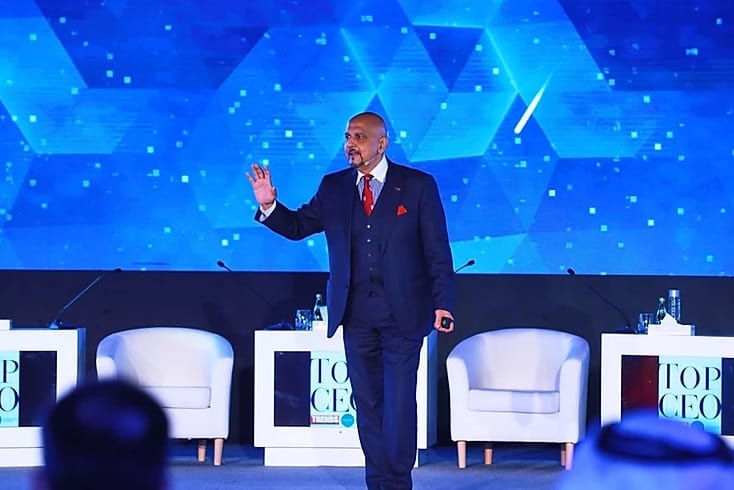Artificial intelligence and machine learning are stirring as much of a concern about job security as they are steering efficient outcome strategies.
The debate on investing in a human workforce compared to technological innovations and disruptions in an ongoing one.
A recent survey conducted by Wells Fargo/Gallup Investor and Retirement Optimism Index shows that 84 percent of investors would rather depend on the human touchpoint of financial advisors than rely on automated investment technologies.
For the past five years, the GCC and Middle East countries have been increasingly focused on adopting new technologies, and regional companies have been at the forefront of this change.
However, there is a need to evaluate whether new technologies and apps are effectively meeting customer needs and whether businesses need to find a balance between human resources and digitalization.
The Top CEO Conference & Awards 2019 held at the Al Areen Palace and Spa in Bahrain addressed these concerns at a panel discussion titled “The Human Factor and Tech Innovation.”
“The most important discussion of the day is humanity … All of these things are fine – technology, AI, and data – all of this is relevant. Yet, this is not going to define our future. Our future is going to be defined by trust, ethics, humanity, and empathy. You can have Fintech, but if you don’t have compliance and ethics, nothing will work. You can have biotechnological breakthroughs and live 200 years, but if you don’t have a moral compass, nothing will work,” said Tariq Qureishy, Futurist, Founder, and CEO of MAD Talks.
“Our future is going to be defined by trust, ethics, humanity, and empathy. You can have Fintech, but if you don’t have compliance and ethics, nothing will work.” – Tariq Qureishy, Futurist, Founder, and CEO of MAD Talks
Upcoming trends strong
By the year 2025, more than 75 percent of the global workforce is going to comprise of millennials.
This is a generation that invests highly on experience and is commonly believed to have higher attrition levels.
Yet, a majority of the world’s spending is going to be done by people who are aged 50 and older. “Ignore them at your own peril,” warns Tariq Qureishy.
Another major trend affecting investment around the world is climate change. From volatility in oil prices, to investments redirecting into renewables, and a push for diversification in the Middle East, the energy sector – that has long dictated global business hegemony – is witnessing a major shift.
“If we continue on the same trajectory … geographies will break down,” Tariq Qureishy said, calling for actionable ideation and implementation of eco-friendly initiatives.
“Whatever brought you to this point doesn’t take you into the future,” said Tariq Qureishy in the context of continuous learning, adapting, and being open to implementing innovation. “The future looks complicated, very complex.”
“There is an abundance of opportunity,” he remarked while addressing a score of topics from the potential benefits of 3D printing, blockchain, digital immortality to genome sequencing and more.
“In reality, for businesses to be successful – first, we need to be customer-focused and then, we need to spend massive amounts in research and development,” said Jorge Sebastiao, CTO Eco-system at Huawei Technologies.
“For businesses to be successful – first, we need to be customer-focused and then, we need to spend massive amounts in research and development.” – Jorge Sebastiao, CTO Eco-system at Huawei Technologies.
“This is one of the biggest challenge that we’ll have to face in the future – wherein our teams, our companies, even our business models will continue to evolve every day. There is no such thing as the long-term or 10-year planning any longer. We need to be ready for much more agile thinking, and need to be ready to re-engineer ourselves, our skills and our businesses,” said Xavier Anglada, Managing Director – Accenture Digital Lead in the Middle East, North Africa, and Turkey.
This report is part of the coverage of the Top CEO 2019 event.

